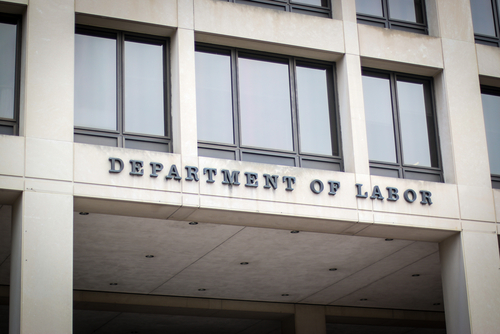 By Brad Cave
By Brad Cave
On June 7, 2017, the U.S. Department of Labor (DOL) announced that it was withdrawing two informal guidances, namely a 2015 administrator interpretation on independent contractors and a 2016 administrator interpretation on joint employment, effective immediately. The DOL’s short announcement states that the removal of the administrator interpretations does not change the legal responsibilities of employers under the Fair Labor Standards Act (FLSA) and the Migrant and Seasonal Agricultural Worker Protection Act (MSPA), and that the DOL “will continue to fully and fairly enforce all laws within its jurisdiction.” Here’s an attempt to read between the lines and determine the DOL’s position on these two issues.
Withdrawal of Independent Contractor Interpretation
When we wrote about the July 15, 2015 independent contractor interpretation here, we noted that then-Wage and Hour Division Administrator David Weil stressed that most workers meet the criteria to be deemed employees under the FLSA, and therefore, should not be treated as independent contractors. Although noting that multiple factors are used to determine independent contractor status, former administrator Weil stated that the DOL would focus primarily on whether the worker runs his or her own independent business or if instead, the worker is economically dependent on the employer.
Withdrawal of the 2015 interpretation guidance does not change the fact that to “employ” is broadly defined in the FLSA as “to suffer or permit to work” and consequently, most individuals hired to perform work fall within that definition as an employee. In addition, the long-standing multi-factor “economic realities” test used by courts to determine whether a worker is an employee or an independent contractor will continue to apply.
That said, the withdrawal of the 2015 administrator interpretation may be a signal that the DOL will no longer focus on misclassifications of independent contractors with the same fervor as it previously did. A more business-friendly DOL may choose to rely on certain factors, such as an independent contractor agreement setting forth the business relationship and the comparative degree of control over the work exerted by the two parties, over those factors that were highlighted in former administrator Weil’s interpretation, such as whether the worker runs his or her own independent business. The distinction between employees and independent contractors remains, but query whether this DOL, under the direction of new Secretary of Labor Alexander Acosta, will change the balance in determining independent contractor status.
Joint Employment Interpretation Withdrawn
When the DOL issued its administrator interpretation on joint employer status in February 2016, we wrote here that the DOL made it clear that the agency planned to examine dual employer relationships very closely, with an apparent intent to find joint employer status in more circumstances under both the FLSA and the MSPA. By withdrawing that interpretation, the DOL may be suggesting a contraction of its efforts to find joint employer status. If that is the case, employers who utilize workers employed by a staffing agency or other workers provided by a third-party may face less scrutiny (and potentially, less liability) for wage and hour violations as a potential joint employer. In addition, companies that use the same workers across different subsidiaries or among other legally distinct entities may see a relaxation of the DOL’s emphasis on joint employer status.
The Tea Leaves Say . . .
Employers should stay vigilant about ensuring that workers they treat as independent contractors meet the multi-factor tests for independent contractor status. Similarly, organizations that could be subject to the joint employer analysis should examine their status under the applicable tests and are urged to review their third-party staffing arrangements to ensure compliance with wage and hour (and other DOL-enforced) laws. But, with the withdrawal of some of the more proactive enforcement approaches of the past administration, the DOL may be signaling its more business-friendly stance. Perhaps the National Labor Relations Board (NLRB) will be next to announce a less aggressive view towards finding joint employer status and a retraction of other arguably expansive positions taken in past years. We’ll keep you informed as new developments arise.


